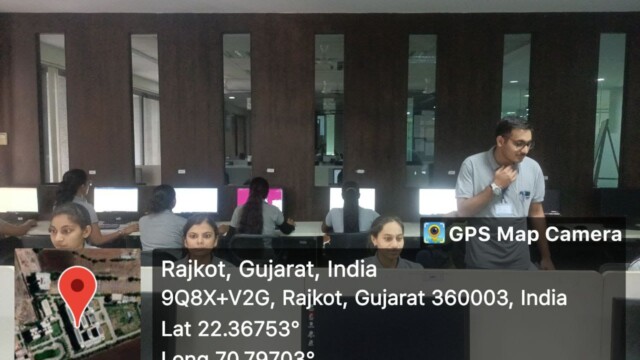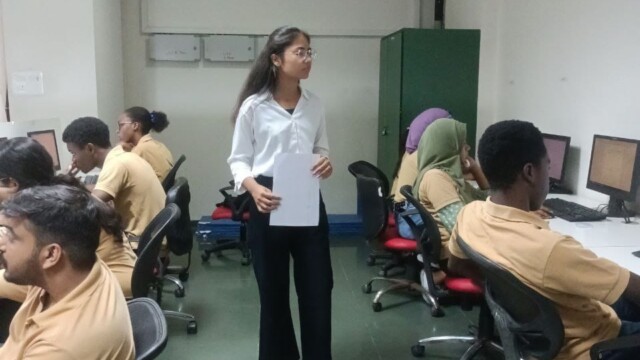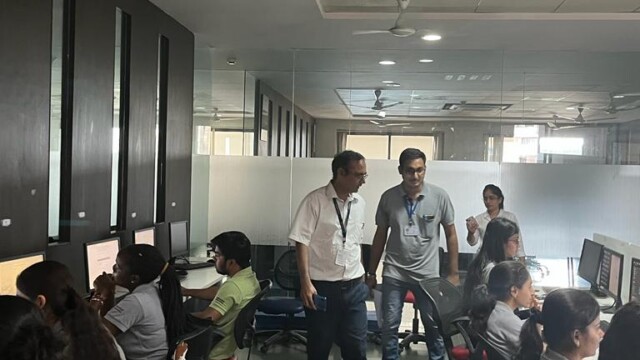From medicines, vitamins, vaccines to dairy products, the contribution of microbiology in each discipline has been tremendous. Since microorganisms are present everywhere and they impact the environment in many ways, they make the study of microbiology quite engaging.
With a growing number of students considering microbiology courses to pursue their careers, the popularity of the field has gone all the way upwards. Students who successfully complete a programme in microbiology are known as microbiologists.
Know about what a microbiologist does, how to become one, career options & more below.
What Does a Microbiologist Do?
Microbiologists study the growth and properties of microorganisms and other disease-causing pathogens that one cannot see with the naked eye. They comprehend the interactions of microorganisms with the human that exist and influence lives and the environment. Along with this, microbiologists check whether microorganisms are of agricultural interest, the food is safe to eat or not, what role microbes play in climate change and more.
How to Become a Microbiologist in India?
For becoming a microbiologist in India, you are supposed to earn some relevant academic degrees and research credentials. Here’s how you can become a microbiologist:
Get a Bachelor’s Degree in Microbiology: The most popular way to get a bachelor’s degree is by opting for a Bachelor of Science (BSc) in Microbiology. You can also consider going for any other equivalent degree in any other branch of microbiology. If you wish to work as a laboratory assistant or in another entry-level role, you can start right after your bachelor’s degree.
Try Research Internship: During your undergraduate study, you should save no effort to explore an internship that enables microbiology research. By getting experience in an internship, you will get great exposure to visualize your future in the field.
Study a Master’s in Microbiology: Once you earn your bachelor’s degree, opt for a postgraduate degree in Microbiology or a related specialized field. You can consider pursuing MSc in Microbiology to become a well-qualified microbiologist in future. You can pursue masters if you wish to start your career as a senior-level researcher.
Opt for a PhD: If you wish to go in-depth in the microbiology field, then you can consider starting with a beginner research profile and opt for a PhD degree side by side. Getting a PhD is one of the highest qualifications that will help you thrive in future. If you wish to work as faculty in a university, then PhD is a must.
Eligibility to Become a Microbiologist:
- For an undergraduate degree like BSc in Microbiology, students should have cleared class 12th science (PCB) with a minimum of 40-50% marks.
- For pursuing a postgraduate degree like MSc in Microbiology, students should have a degree in BSc Microbiology/Biology/Botany or other related subjects.
- Students who are willing to go for PhD or M.Phil. need to have a master’s degree in Microbiology or related areas.
Employment Opportunities for a Microbiologist:
Food Industries
Food microbiologists make sure that the food, which is being supplied to groceries or vendors does not contain disease-causing pathogens. Food Microbiologists work in organizations like the Department of Agriculture, Food and Drug Administration and food processing industries.
Hospital or Clinics
Microbiologists working in healthcare centres classify toxic microorganisms that can affect a human body or have already affected one’s health. Medical microbiologists work to prevent diseases by limiting their spread and treating them.
Research
One of the most rewarding areas to work in for microbiologists is research. Research microbiologists’ study and test microorganisms in the restrained environment to analyze them and to know how they react when put through several tests.
Education
Microbiologists interested in passing on their knowledge to young minds can choose to teach microbiology in colleges and universities. These Microbiologists should stay updated about advancements in the field to impart upgraded learning to students.
Environmental
Microbiology deals with how microorganisms react with themselves and environmental processes like climatic changes, pollution, plants and animals etc. The microbiologists working with the environment learn about the organisms like bacteria and their reactions.
As seen, a career in microbiology is a promising one. Whether you are looking to study BSc Microbiology, MSc Microbiology or PhD, you can choose to go for Marwadi University.
Marwadi University is a NAAC A+ certified institute, which provides advanced education and high-tech facilities to ensure academic excellence. MU provides state-of-art labs for microbiology, expert faculties with research experience, tie-ups with national plus international academic & research institutes and more to deliver the best education to students.



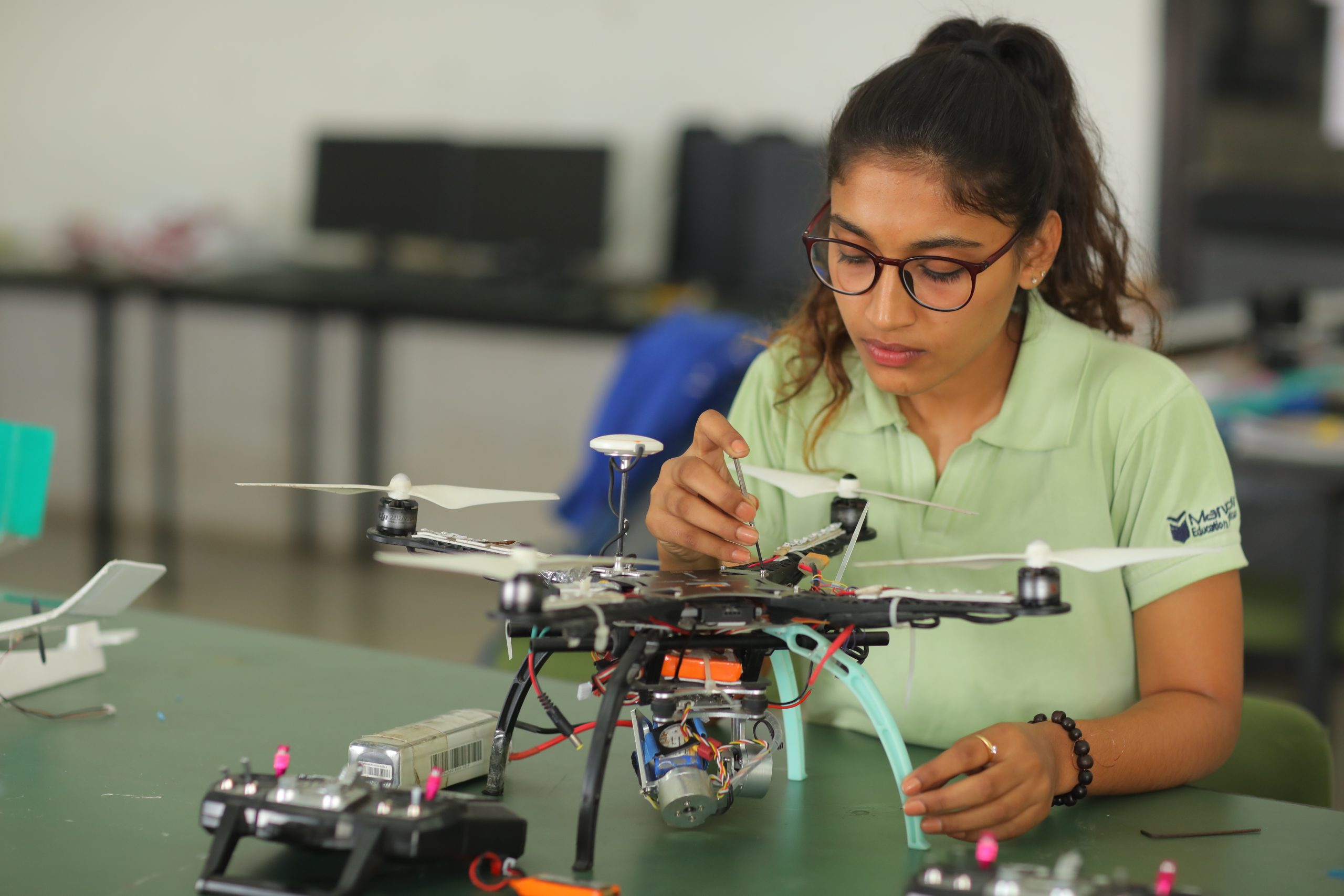

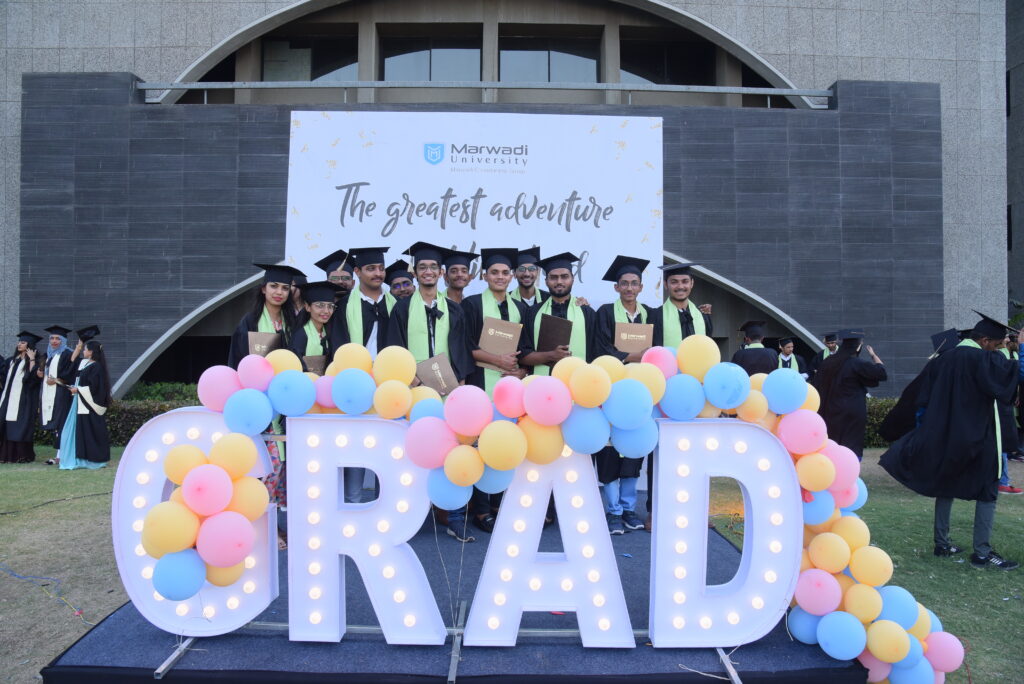










 International Airport
International Airport  Railway Station
Railway Station  GSRTC Bus Port
GSRTC Bus Port 
